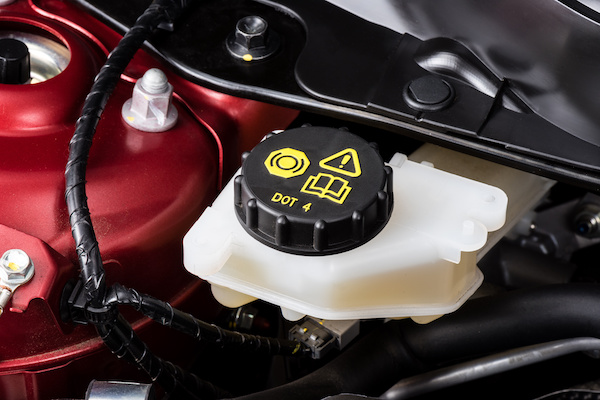
The average driver does not have a very good understanding of brake fluid. We all know our cars need it, but that's it. For instance, there are different ratings for brake fluid, and that they can affect how your vehicle performs.
Understanding what brake fluid does, what the ratings mean, and the difference between these types of brake fluids can help you make better choices for your vehicle's brake system long-term.
How It Works
Many cars use a hydraulic braking system, which means it relies on fluid. Without brake fluid, your vehicle won't be able to go through the processes it does to stop. As a responsible car owner, you need to change your brake fluid over time. Brake fluid is prone to absorb moisture, which makes it lose its efficiency. You might be wondering why moisture is harmful to your brake fluid? New brake fluid has a boiling point that is a higher temperature than the conditions produced while braking. And water has a much lower boiling point. If moisture is trapped in the fluid, it can release gases whenever you brake, slowing down the braking process.
What Are The Ratings?
The ratings for brake fluid are related to its boiling point. The boiling points are broken down into two categories: wet and dry. Traditionally, the ratings used in automobiles are DOT 3 and DOT 4 brake fluid. The DOT stands for The Department of Transportation, the organization that defines these ratings.
DOT 3 vs. DOT 4
When comparing the differences between these two brake fluids, you should know that there is no standard formula for brake fluid. Each type of brake fluid may vary in compounds or chemicals from brand to brand. The only differences that distinguish DOT 3 vs. DOT 4 brake fluid are:
- DOT 3 brake fluid will absorb less water than DOT 4, meaning you'll need to have your fluid changed less often.
- DOT 4 brake fluid has higher dry and wet boiling points, supporting higher temperatures.
Ultimately, the difference between DOT 3 and DOT 4 brake fluids lies in their heat resistance and water absorption. DOT 4 fluid has higher dry and wet boiling points, required in brake systems that produce more heat due to higher speeds. However, DOT 4 absorbs moisture quicker than DOT 3 brake fluids and should be changed more regularly.
When you require a brake fluid change, you should consult your owner's manual to see what type of brake fluid your manufacturer recommends. It is highly frowned upon to mix different kinds of brake fluid. If you're unsure what kind of brake fluid your car needs, feel free to take your car to Nortex Lube and Tune for assistance.